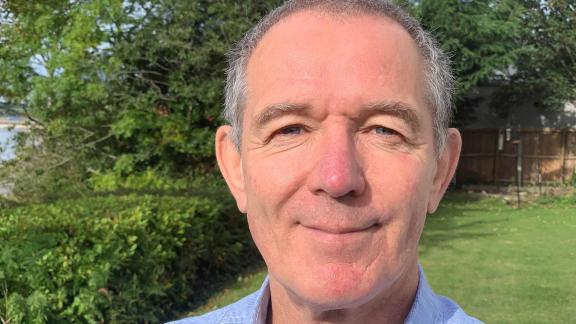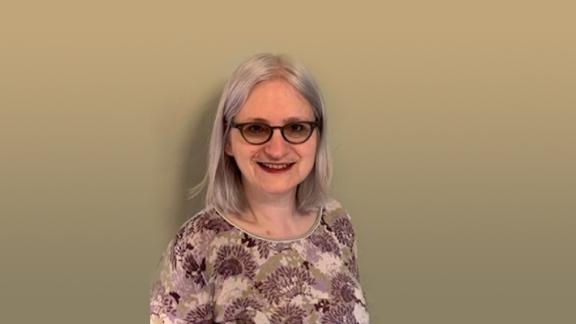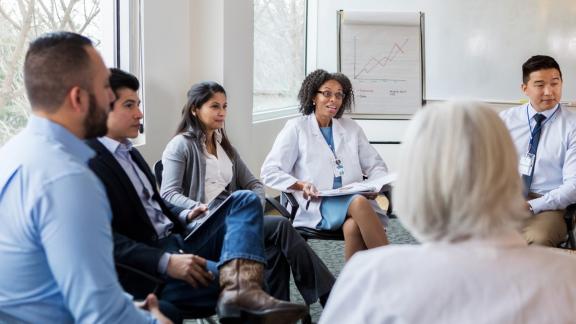It’s good to talk

In 2020, men continued to account for three-quarters of registered suicide deaths. Mark Spencer writes on initiatives in Fleetwood that are literally saving men’s lives and helping local NHS services.
I first met Tony O’Neil (real name, real person) about four years ago at one of our monthly Healthier Fleetwood resident connect get-togethers. In the previous few weeks six people had taken their own lives in the town, five of them young men. At Healthier Fleetwood meetings residents talk openly about what matters to them. Understandably suicide was something that people wanted to discuss on this occasion. The content of the conversation wasn’t centred around what the NHS and mental health specialists could do to reduce suicide, but what, as a community, Fleetwood residents could do themselves. I remember Tony standing up and telling his story. Tony has subsequently told his story openly at various NHS conferences so I’m breaking no confidences in writing this blog.
How it all started
As Tony talked and the guard listened, Tony began to realise that his life was perhaps not as hopeless as he thought
Tony started talking about his own dark times. How chronic ill health consisting of failing eyesight as a consequence of diabetes, a cancer diagnosis and a cardiac arrest in the back of an ambulance, coupled with deteriorating mental health brought on by family circumstances, led Tony to believe that the only way out for him was to end his life. He recounted standing at the end of the pier in the middle of the night waiting for the tide to come in, with every intention of jumping in, swimming out to sea, and ending his life. A security guard had noticed Tony, walked over to him and, realising the intention, asked him why. Eventually Tony started to tell this stranger his story. As Tony talked and the guard listened, Tony began to realise that his life was perhaps not as hopeless as he thought and rather than jump into the sea, he accompanied the guard off the pier and walked home.
At the residents meeting he described how he now wanted to set up a safe space where men could talk to other men about what was going on in their lives and how this made them feel. With the help and support of Healthier Fleetwood Tony set up Men’s Shed Fleetwood. Initial meetings were held in a local authority-owned pavilion in a local park, the use of which was given to them free of charge by Wyre Council. They subsequently set themselves up as charity and have now bought their own premises.
It’s been a privilege to have seen the Men’s Shed grow to become a self-supporting entity, with ever increasing numbers of men linking into the support and friendship offered.
Filling a gap
I’m aware that a large proportion of men are ex-service personnel with significant post-traumatic stress disorder and complex mental health issues. Tony, and all the volunteers are non-judgemental, open and caring. Prior to COVID-19, the Wednesday morning Veterans Breakfast Club held in a local church hall was a joy to attend, which I had the pleasure of being invited to experience. Throughout the pandemic Men’s Shed volunteers stayed in contact with large numbers of residents, also helping to provide food and clothing to those in isolation. The Veterans Breakfast Club has recently recommenced, along with other face-to-face gatherings.
Real results
Fleetwood Fleetwood GPs, mental health nurses and social prescribing link workers are able to signpost people to the Men’s Shed
I’ve personally seen a significant number of men benefit from their involvement with the Men’s Shed. Being connected to others, developing a sense of belonging, improving self-confidence and beginning to take control of their own lives. All of these things have a very beneficial effect on people’s mental health and general wellbeing. A significant proportion of the men have been able to discontinue anti-depressant medication, as well as address issues such as alcohol and drug misuse.
Fleetwood GPs, mental health nurses and social prescribing link workers are able to signpost people to the Men’s Shed in the confidence that emotional support will be offered in a caring and trusting environment. This not only significantly benefits the person themselves, but also reduces the pressure on NHS services in the town, in turn improving access for everyone.
Fleetwood Men’s Shed is literally saving people’s lives.
Dr Mark Spencer is a GP at Mount View Practice, clinical director at Fleetwood Primary Care Network and NHS Confederation National PCN Network board member. Follow him on Twitter @markspen9999



